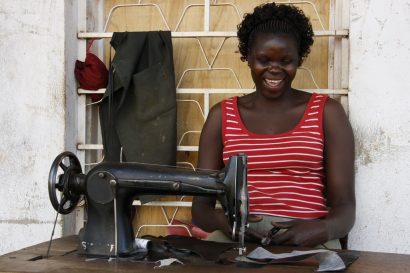 Curriculum, Learning and Teaching
Curriculum, Learning and Teaching
The good practices contained within these Guidance Notes are designed to help governments, non-governmental organisations and other education stakeholders plan and implement high quality education programmes. Too often in the wake of mass violence, inter-group conflicts, or natural disasters, education, and in particular quality, relevant education, is neglected and not integrated into a holistic humanitarian… Read more
An effective and efficient teacher salary system is one of the most important elements of a high quality education system in any country. This report provides practitioners with a clear framework for assessing teacher salary systems in fragile and conflict-affected states (FCAS). The framework has been developed by the authors based on general public financial management… Read more
Globally, young children bear the greatest burden of poverty, disease, neglect, and lack of educational opportunities. This volume’s goal is to promote evidence-based policies for advancing the positive development of young children everywhere, with a specific focus on developing countries. It brings scientific knowledge about early child development (ECD) in both developed and developing countries… Read more
As governments and donors focused on increasing access to education in the wake of the Millennium Development Goals, the issue of learning received comparatively little concerted attention. Some organisations working in countries where access was rapidly increasing took notice of the fact that, while rising enrollment rates were being celebrated, there was little evidence of… Read more
There is a global rise in the number of countries undertaking national learning assessments, as well as international and regional learning assessments. Much of this growth, especially in national learning assessments, has occurred in economically developing countries. However, little is known, on how these assessments affect education policy and practice in developing countries. This review… Read more
DFID Uganda is re-engaging in the education sector after several years. This is the final report on a process of identifying and appraising options for supporting improvements in early grade learning outcomes, conducted by a team of consultants under the direction of the DFID Uganda Education Adviser. The strategic case for intervening to improve learning… Read more
This rapid review identified a number of resources on primary education interventions in Malawi. Section 2 highlights literacy interventions. The Early Grade Reading Project (EGRP), funded by USAID, aims to strengthen teaching methodologies, develop appropriate learning materials, increase parental and communal support for reading, and improve the policy environment for reading. Evaluation of this project… Read more
Pauline Rose is a professor of international education at the University of Cambridge and director of the Research for Equitable Access and Learning (REAL) Centre. In this video Pauline discusses findings from a HEART think piece: How can education systems become equitable by 2030?, written by herself and Ben Alcott. She speaks about inequalities in access to education… Read more
This topic guide is focused on skills immediately necessary for employment and increased productivity. It focuses on technical and vocational education and training (TVET) skills, which are concerned with the acquisition of knowledge and skills for the world of work. The importance and value of obtaining basic skills is recognised as a pre-requisite for higher order skills development. This document was written between July and December 2015 and includes evidence that was available at this time. Read more
The global labour market in 2015 was characterised by high unemployment, with large numbers of people either unemployed, underemployed or in vulnerable jobs. Women have most difficulty accessing decent work and are under-represented in the labour force. This has occurred despite an accelerating pace of growth in the 21st century. In parallel with the steady rise… Read more
Research on education and conflict shows that education systems are not politically neutral but are an important part of the political economy that can exacerbate or mitigate conflict. The curriculum can be used as a vehicle to promote dominant ideologies. There are numerous instances where school curricula have been used to oppress particular ethnic groups… Read more

 Curriculum, Learning and Teaching
Curriculum, Learning and Teaching





